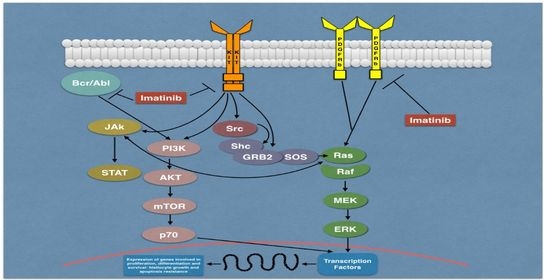Targeting Cell Metabolism as Cancer Therapy (Closed)
A topical collection in Biomedicines (ISSN 2227-9059). This collection belongs to the section "Cancer Biology and Oncology".
Viewed by 3263Editor
2. Faculté de Pharmacie, 4 Avenue de l'Observatoire, 75006 Paris, France
Interests: interface between signal transduction and cancer with a focus on the alternative NF-kappaB signaling pathway, how it is regulated, and its contributions towards tumor development and resistance to conventional cancer therapies
Special Issues, Collections and Topics in MDPI journals
Topical Collection Information
Dear Colleagues,
Reprogramming of energy metabolism in cancer has recently been recognized as one of the hallmarks of cancer and its understanding will contribute to the development of new anticancer strategies and/or improve the effectiveness of existing therapies.
This Topical Collection aims to publish research on the metabolic features of solid and hematological cancers, including cancer cells and the tumor microenvironment, and how to exploit the metabolic perturbations to develop new anticancer treatments.
We invite research and review papers covering all aspects of cancer cell metabolism and related innovative cancer therapies. Topics include, but are not limited to, fundamental understanding of metabolic disturbance in cancer, associated gene expression profiling, epigenetic regulation, metabolomics, diagnostic and prognostic biomarkers, molecular targets, cancer drug development targeting metabolism, clinical trials with new agents, and validation in animal models.
Dr. Veronique BaudCollection Editor
Manuscript Submission Information
Manuscripts should be submitted online at www.mdpi.com by registering and logging in to this website. Once you are registered, click here to go to the submission form. Manuscripts can be submitted until the deadline. All submissions that pass pre-check are peer-reviewed. Accepted papers will be published continuously in the journal (as soon as accepted) and will be listed together on the collection website. Research articles, review articles as well as short communications are invited. For planned papers, a title and short abstract (about 100 words) can be sent to the Editorial Office for announcement on this website.
Submitted manuscripts should not have been published previously, nor be under consideration for publication elsewhere (except conference proceedings papers). All manuscripts are thoroughly refereed through a single-blind peer-review process. A guide for authors and other relevant information for submission of manuscripts is available on the Instructions for Authors page. Biomedicines is an international peer-reviewed open access monthly journal published by MDPI.
Please visit the Instructions for Authors page before submitting a manuscript. The Article Processing Charge (APC) for publication in this open access journal is 2600 CHF (Swiss Francs). Submitted papers should be well formatted and use good English. Authors may use MDPI's English editing service prior to publication or during author revisions.
Keywords
- Reprogramming of metabolic pathways in cancer cells
- Deciphering metabolic signaling pathways
- Cancer metabolism related to:
- gene expression profiling
- metabolomics
- epigenetics
- oncogenomics
- biomarkers
- cancer targeted diagnosis
- cancer-targeted therapeutics
- innovative anti-metabolic therapies
- mechanism-based drug development
- drug discovery
- clinical trials
- animal models







